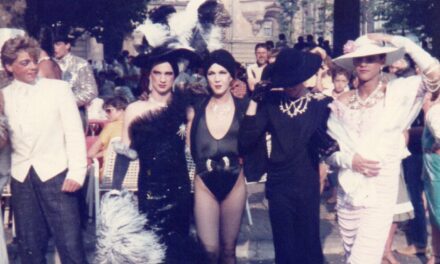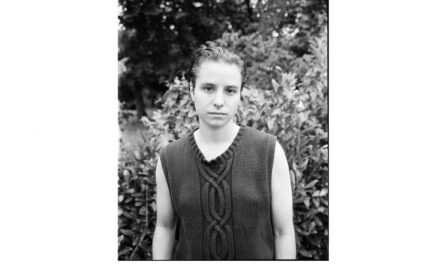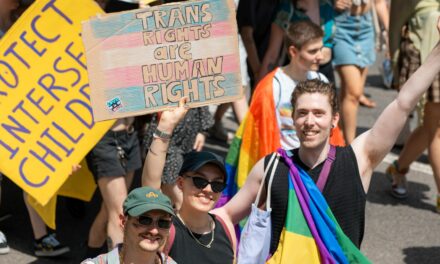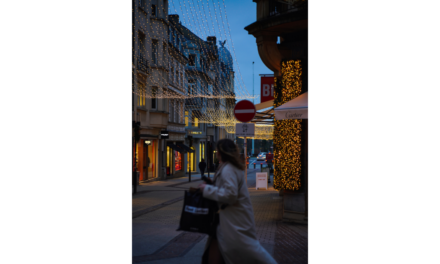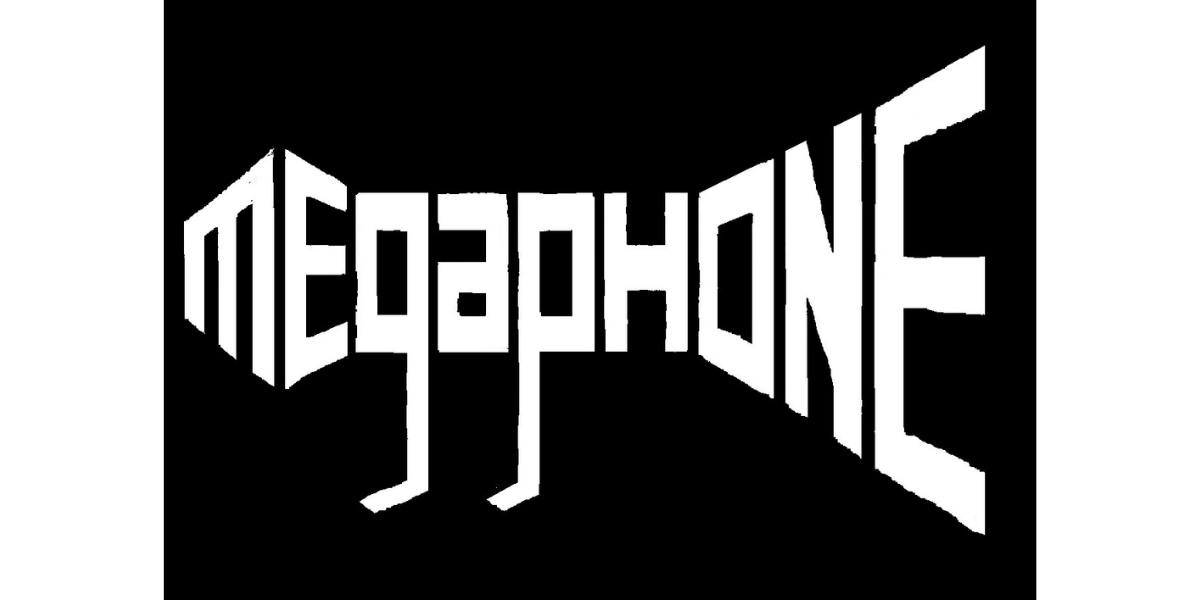
The recent launch of the autonomous platform, Megaphone, is dedicated to showcasing the potential of an alternative approach to activism including an intersectional blend of various movements such as queerfeminism, anti-racism, decolonialism, climate consciousness, anti-ableism, anti-fascism and anti-capitalism. This is why the collective of collectives has chosen to launch their own series of alternative pride events to provide a platform for those who feel marginalized within the mainstream official Pride events.
With Pride celebrations underway, déi aner, one of the collectives associated with Megaphone, wanted to give each member the opportunity to discuss the following questions:
- What references of historical achievements in Luxembourg and beyond are there that we can be proud of?
- What is there not to be proud of in terms of queer rights in Luxembourg and beyond?
- And, why is organizing an alternative to Luxembourg’s official pride necessary?
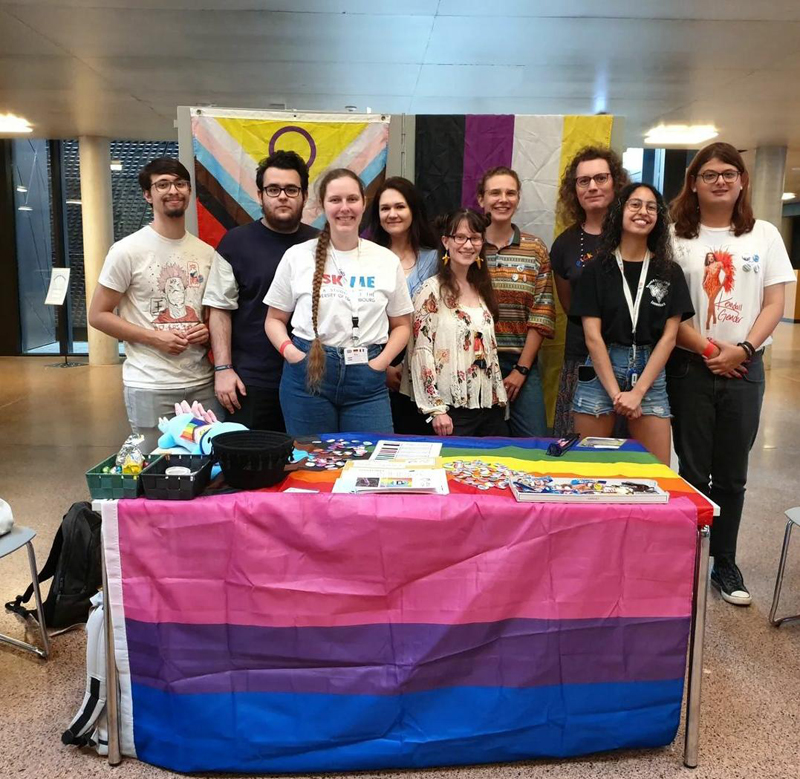
PRIZMA
- We are proud of Luxembourg being a country that gives society a room for a vivid and active civil life in terms of LGBT+ activism. Besides our activities within PRIZMA, we frequently participate in events which are the fruits of the collaboration with other LGBT+ organisations, including Centre LGBTIQ+ CIGALE and Rosa Lëtzebuerg. This underlines the great sense of community.
- There is still a lot of work to be done. First, there is a lack of intersectionality because it feels like white cis men are more visible than other parts of the community, i.e., FLINTA people are underrepresented. Secondly, there is a need for sensitization about LGBT+ people in the wider society because the stigma and stereotypes persist – especially in the case of trans individuals. Although during pride month everything seems “queer friendly”, we still face discrimination during the rest of the year. There is a lack of genuine inclusivity in Luxembourg. Thirdly, trans people face several obstacles when they want to transition medically. For instance, the approval of a psychiatrist is still needed. We believe that one shall have the right to autonomy over one’s own body. Furthermore, psychiatrists rarely understand the concept of being trans or non-binary. Fourthly, Luxembourgish law provides for only two gender options. Therefore, individuals who do not identify with the gender binary still cannot register as third gender. This also gives the University of Luxembourg the opportunity to hide behind the law and say that they cannot implement a third gender option. We have been fighting for three years to implement a preferred name option at the university; this semester it has been partially implemented. We would like to see the university taking on a public role for defending LGBT+ rights in Luxembourg through better inclusion policies for students and staff alike. Finally, on a higher level, the principles of equality and non-discrimination of LGBT+ individuals must be further and explicitly constitutionalised beyond the standards of the Council of Europe and the European Union. It is time that the constitutional right to equality overcomes political incentives and strategies.
- We think that organising an alternative pride is necessary because political parties and companies are always at the front of the march instead of putting the community in the focus. Each year, there is a long political speech about politics and how Luxembourg is working on being inclusive. Prizma would rather see a Pride which is organised by the community for the community, without any company related or political advertisement. Just coming together to celebrate who we are and demonstrate for our rights without having to be behind political parties and figures. FLINTA people are highly underrepresented in Luxembourg and an alternative pride would make them stand out and feel empowered for once. It is time to show true visibility by bringing the underrepresented people out of their shadows!
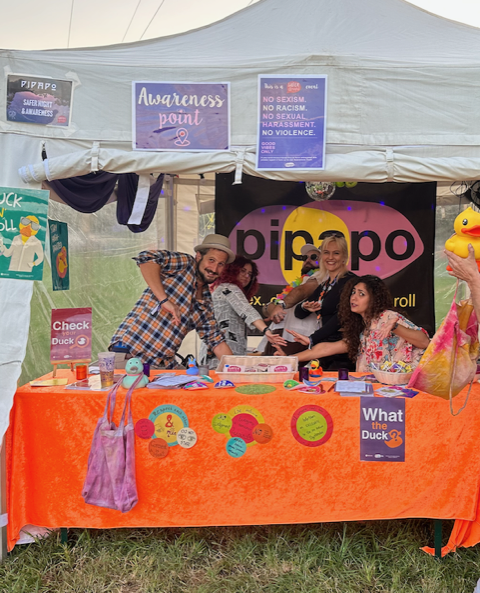
LYNN FROM PIPAPO
- What comes first to my mind is the right for same sex marriage since 2015, which is indeed something to be proud of. On the other hand, I don’t know how it would have been without a gay man as a Prime Minister at that time. Imagine also a queer woman would have wanted to establish that law… what a bigger fight it would have been. (Not even speaking about becoming a Prime Minister as a queer woman).
- Marriage or Pacs is one thing, but when it comes to children, there are laws missing. So for example, the recognition of parenthood for same-sex couples isn’t automatic and there is no prohibition of surgeries on children with variations of sex characteristics without their consent. Also having laws doesn’t mean that there is enough safety from discrimination and violence.
- The alternative to official pride comes from needs and voices not being heard or even ignored in the past. An important step is that the name from the beginning « Gaymat » has been changed to « march for equality », which is more inclusive. But even then, have the decision makers for the pride changed? People who have been forgotten and discriminated against will create their own (safe) spaces, it is always like that, until social change will happen.
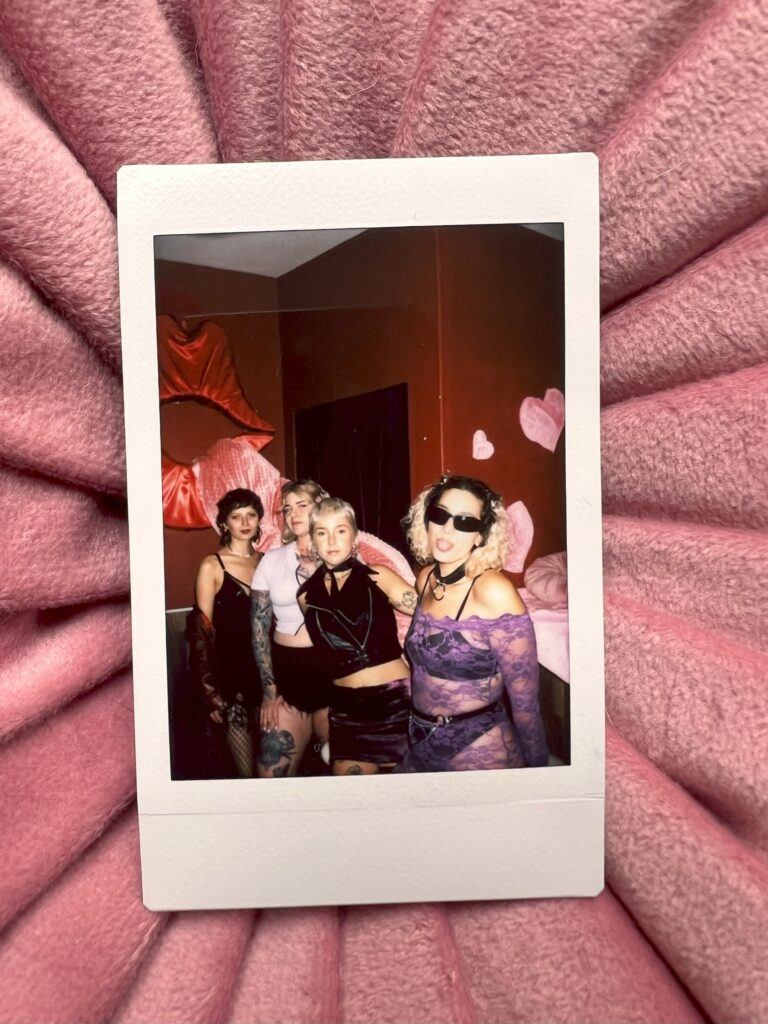
MARIE FROM GEBEESS HOUEREN
- In recent years, there has been a rise in projects, associations, and initiatives that aim to sensitise the public about discrimination, diversity and equality. I am especially proud of all those people working in the background, outside of politics and big marketing campaigns. People who invest their valuable time and energy for the queer cause, and working for a better future for all. Times are changing. Generations of people have been fighting for their rights and society, as a whole, has started to treat us as actual human beings. We had an openly gay prime minister and legal union for all has been legalized. Yet, much still needs to be done.
- Our fight is far from over. There is a huge gap between the legal rights of queer people and what actually happens to people day by day. Systematic discrimination doesn’t disappear by having a few laws and international brands using the rainbow flag in their marketing campaigns once a year. People still face fear, judgement, incomprehension, and systematic discrimination. It’s easy to see our country as modern and open, and telling ourselves that everything is fine now. Yet our streets are still not safe, homo- and transphobia is still anchored in our society and people are in urgent need for safe spaces.
- Worldwide, Pride has been turned into a trend, a marketing campaign. It’s generally accepted as long as it’s funny, quirky, colourful. And as long as people do not need to check their own biases. It’s much easier to tell ourselves that we live in an open and accepting society, with pride parade as a proof of having reached that level, than accepting the fact that not enough has been done.
An alternative to Pride is necessary, to give a voice and a platform to those who are not heard, not visible. An intersectional approach is needed: what about trans people? What about non-binary people? What about people of colour? What about people with disabilities? What about asexuals, polyamorous, agender? What about all those that are not just gay, but also face multiple discriminations due to their age, social situation or health? As a concept, Pride is equal to an assimilation of all those who don’t fit the definition of what’s normal. But we do not need assimilation, we do not want to be put into social moulds, because that often entails hiding or repressing parts of ourselves. What we need are safe spaces and the freedom to live our lives as we wish to live them. As diverse and colourful and peaceful as we wish them to be.
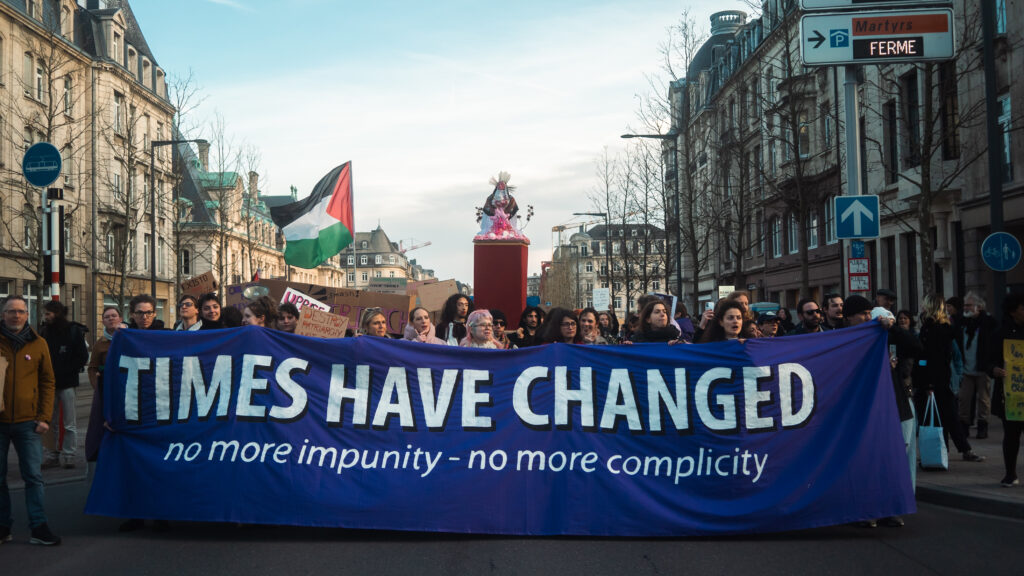
RICHTUNG 22
1. The queer community has fought long and hard, through forced sterilization, criminalization, death penalty, the AIDS pandemic and much more. We have shown a great deal of resilience in the face of governmental abandonment, police violence and a careless general public. We have a rich history and every year we remember and celebrate those who have left their lives for the cause. But the fight is far from over; what is there really to be truly proud of when queer identities are still criminalized in 64 countries, almost a third of the world map. Though there is hope. In spite of the lack of visibility and resources, the trans community in Luxembourg is growing. We are not giving up. We are standing together; the fight will go on.
2. Luxembourg loves to promote itself by having had a gay prime minister and other openly gay, high-ranking officials. Everyone is proud that we made same sex marriage legal…in 2015, making Luxembourg the last Benelux member and 10th in Europe to take this step. We cannot hide behind the glitter. Still today, in Luxembourg and anywhere else, transition journeys for trans people, regardless of their age, are unbearably long and make it very clear how trans youth globally are up to 2.5 times more likely to attempt suicide.
3. The official “Luxembourg Pride”, formerly called Gaymat is an event, or rather a party by gay men for gay men. The first Pride was a riot. Black trans women were always at the forefront of fighting for queer rights only to be pushed into the background by white men with a rainbow splashed over their tank tops. Yes, Pride should be celebrated and it’s good to see that there’s a community, but Pride is also about fighting. It’s about being heard and not giving up for the sake of all queer lives across the globe. Pride is, and has to be, political.
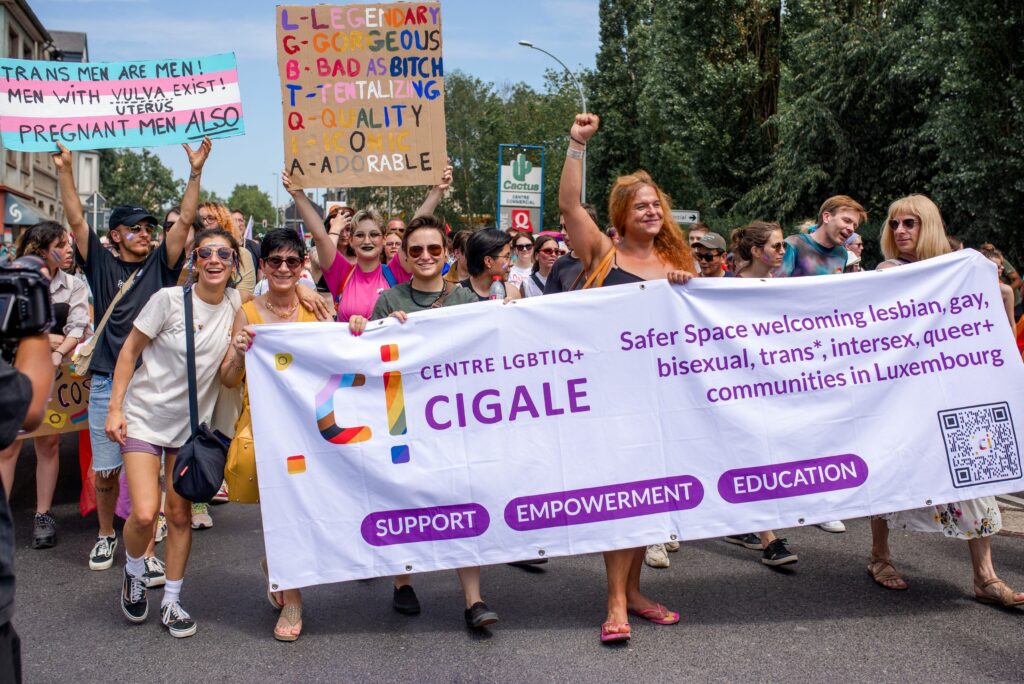
CIGALE
- If we look back at Luxembourg’s queer history, the most visible changes are quite recent law changes regarding the legal recognition of same-sex couples and (binary) trans people. While same-sex sexual activity was already decriminalized for the first time in 1794, it took more than another 200 years until gay and lesbian people gained similar rights as straight people with PACS in 2004 and same-sex marriage and adoption rights in 2015. Until 2018, transgender people needed to undergo surgery and divorce their partner to get legal gender recognition. The law of 2018 made it possible for transgender people to change their legal gender based on self-determination. Are these law-changes something to be “proud” of? It is a country’s duty to guarantee their citizens basic human rights, which also include queer people’s rights. But unfortunately, human rights are still not something to be taken for granted, our communities have to fight for every single one of them. So, queer people can be proud of still keeping it up regardless of the obstacles that are placed in our ways of just being ourselves. We can be proud of the solidarity we show each other.
- While we welcome the possibility for same-sex couples to adopt children and have access to PMA, there is still no automatic parenthood for lesbian mothers. This means that the mother who didn’t give birth to the child has to adopt her own child after a period of 3 months after birth. This problem has been raised for many years without any results. The access to gender affirming healthcare such as hormone replacement therapy and surgeries is still characterized by gatekeeping and gender stereotypes. While legal (binary) gender recognition is depathologized, a reference letter by a psychiatrist is still mandatory for medical care. Unfortunately, there is a lack of qualified medical professionals, which results in long waiting times to start transitioning. This can be a mentally and physically stressful and even often humiliating experience for people who seek gender affirming care. An often-requested alternative would be an informed consent system, which allows the respect of the patient’s autonomy and the right to self-determination. While homosexual and transgender people gained some human dignity during the last 20 years, intersex people are still left out completely. There is no law protecting them from physical harm (for example caused by unnecessary surgeries) or any other form of discrimination.
- Some members of the queer communities don’t feel represented by how the official Pride is organized today. For many of them, it doesn’t reflect enough the diversity of gender identities, sexual orientations, and sex characteristics. Furthermore, it doesn’t adequately represent their struggles, particularly intersectionality and the possibility of another world.
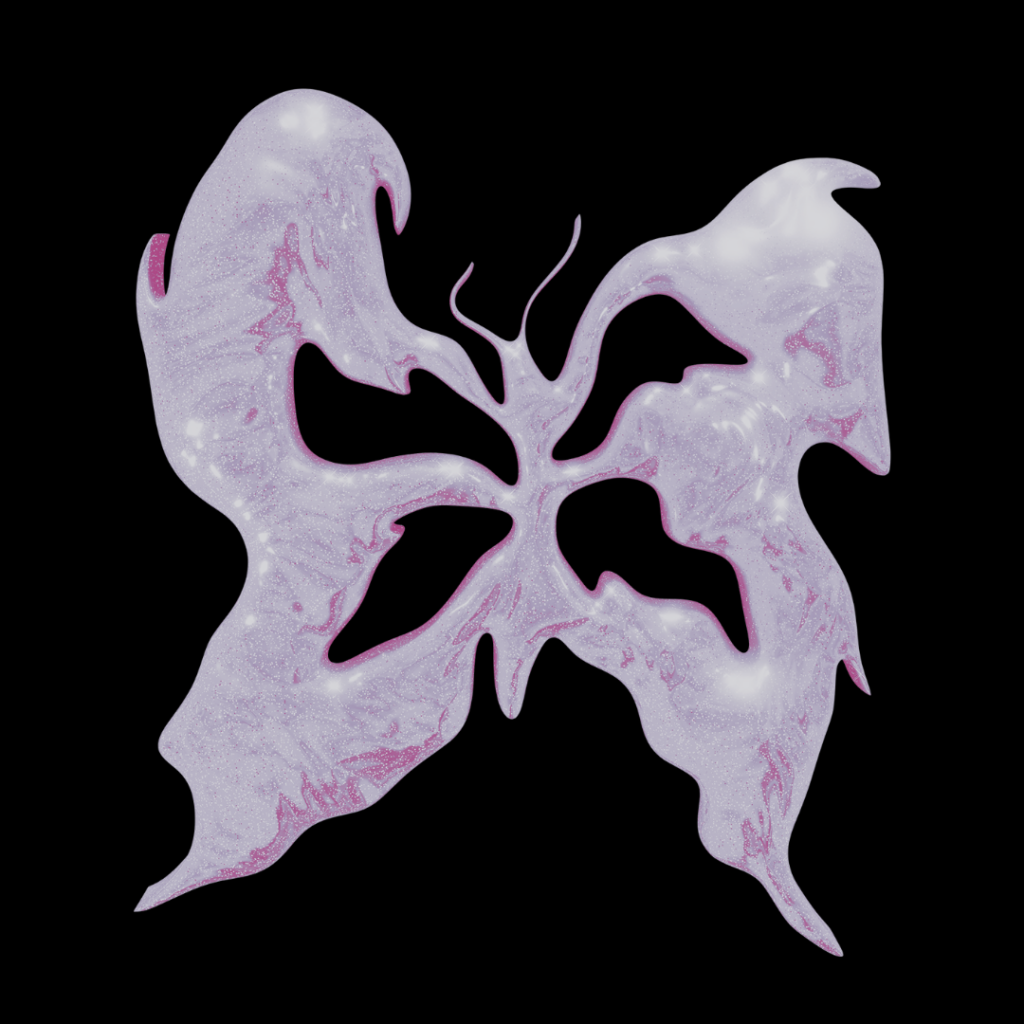
Gabrielle from déi aner
- Luxembourg is a country with a multitude of paradigms. The country prides itself on diversity yet in certain cases has done the absolute bare minimum in putting in place policies that validate and protect queer people. The country and the world have come far and queer rights have reached the mainstream like never before. But, as much as Luxembourg and the world has progressed, we are still only taking tiny steps. We can be proud that we have come a long way, but there is still a long way ahead to envision queer liberation as not just an enactment of certain laws but a change in perspective where we do not envision society and people as having to fit into a specific binary.
- One of the most important things that we can be disappointed in is that queerness in the mainstream in Luxembourg has mostly been dominated by white cis gay men. This means that sexism, transphobia, and racism are still very much present in the discourse around who can be visibly queer. For example, the Palestinian activist movement has been failed by its gay and/or queer siblings and comrades. If we do not see that a fight for the liberation of all queer people regardless of where they come from is also your fight, we will not be able to fully embrace the revolutionary and the most beautiful aspects of our queer identities.
- If you have people who are constantly marginalized from the mainstream queer agenda and are demanding more space for them to create their own safe places, but they do not feel heard – Then yes, an alternative pride is necessary.

